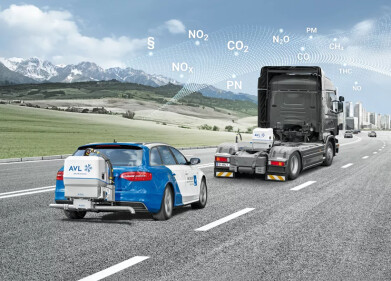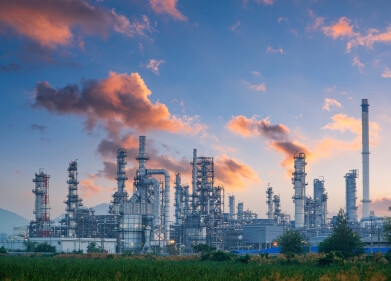Air Monitoring
Is Air Pollution Making COVID-19 Worse?
May 07 2020
Amid all of the tragedy and trauma caused by the coronavirus pandemic, one bright spot latched onto by the media is the side-effect that quarantine measures are having on urban air quality. With far fewer cars on our roads and our factories and workplaces in lockdown, the environmental implications of coronavirus have offered some cause for optimism.
However, the reverse relationship of the two phenomenon has received comparatively little attention. How does poor air quality affect the impact of COVID-19 on those exposed to it? Are people living in more polluted areas more susceptible to contracting the disease in the first place and could they potentially be more vulnerable to succumbing to it in the end?
While the science has as yet proven to be inconclusive, a raft of preliminary studies seem to suggest there is a correlation (direct or indirect) between the quality of airwaves and the death toll caused by the virus. Although all papers must be peer-reviewed before they can be considered as a basis for legal measures, the urgency of the situation means that people may be dying while we wait.
Following the logic
Since the emergence of this deadly disease at the close of last year, the scientific community has been striving to find ways to tackle the spread of coronavirus. Understandably, the focus has also fallen on where our efforts need to be directed in order to stand the best chance of minimising its propagation and keeping the death toll to a minimum.
We already know that those diagnosed with COVID-19 are twice as likely to suffer from pre-existing respiratory complications and three times as likely to have experienced cardiovascular difficulties in the past. Since air pollution has been repeatedly and conclusively proven to damage the heart and lungs, it seems only logical that poor air quality could exacerbate the disease’s impact.
A threefold impact
In particular, researchers have been focusing on three distinct aspects of the relationship between air pollution and the pandemic. Firstly, a cardiovascular system that has been damaged by contaminants may be too weak to fight off COVID-19, thus enhancing the chance of death. Secondly, air pollution can inflame the lungs, which might make a person more susceptible to catching it in the third place.
Finally, a higher concentration of toxic particles in the air might be responsible for spreading the virus further afield, thus multiplying the amount of people infected by it. While our knowledge of all three of these aspects is still at a rudimentary stage, it is increasing.
A growing body of evidence
There have been a wide number of preliminary studies linking air pollution with more pronounced effects of the disease. Perhaps the most famous hails from Harvard University in the USA, but there have been other research papers showing similar results in China, Italy and the UK, to name but a few.
The problem is, none of this research will become reliable enough for governments to base policies upon until they are peer-reviewed, and that’s a process which can take between six months and two years. Of course, the challenge of containing and curing the disease must take priority, but given that this information about air pollution and its links to the disease could have a tangible effect on how well it is managed right now, fast-tracking its review could be an option. Thousands of lives might just depend upon it.
Digital Edition
IET 34.2 March 2024
April 2024
Gas Detection - Biogas batch fermentation system for laboratory use with automatic gas analysis in real time Water/Wastewater - Upcycling sensors for sustainable nature management - Prist...
View all digital editions
Events
Apr 22 2024 Hannover, Germany
Apr 22 2024 Marrakech, Morroco
Apr 23 2024 Kuala Lumpur, Malaysia
Apr 23 2024 Kintex, South Korea
Apr 23 2024 Edmonton, AB, Canada


















